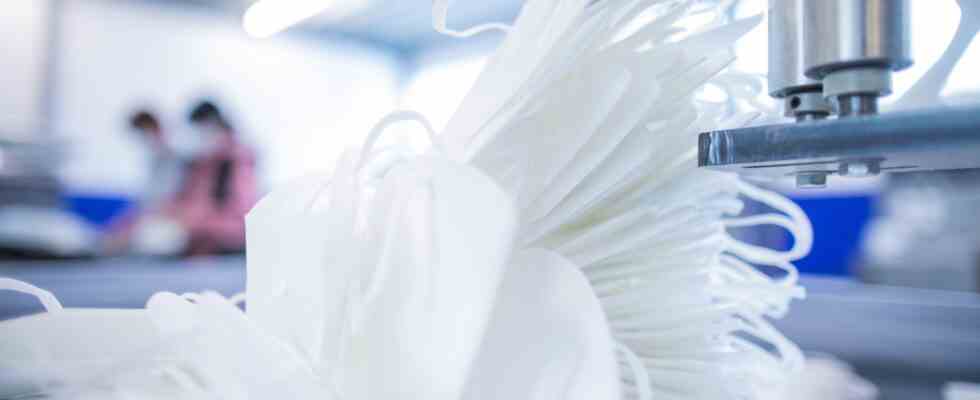Status: 07/17/2022 11:11 a.m
The corona pandemic was a wake-up call, showing the great dependence on countries like China for medical products. The domestic production of masks was ramped up frantically. But now the industry is already threatened with the end again.
When protective masks were in short supply at the beginning of the corona pandemic, many domestic companies started production. The then black-red federal government gave millions of euros in subsidies with the aim of being less dependent on imports from China. But now the association of protective mask manufacturers expects production in this country to end soon.
By 2025 at the latest, everything will be the same as it was before Corona, said association spokesman Stefan Bergmann to the news magazine “Spiegel”: “Many will then probably dismantle their machines and sell them. Probably to China, where some were previously bought. The companies are trying to do this to settle their debts, often in the millions,” said the industry representative. The balance sheet looks rather meager. “Hardly anyone is likely to have reinstated their investments, despite the federal funding,” says Bergmann.
“China will triumph again”
The industry association is an association of German companies that started producing masks during the pandemic. Around 150 companies had produced masks and other protective items in Germany at the peak of the pandemic. The mask association assesses the future as difficult, criticizes Bergmann:
We are standing there, like at the beginning of the Covid pandemic: naked. And China will triumph again if another pandemic strikes.
The reason for the poor business prospects is the higher cost of manufacturing in this country compared to masks made in China. An FFP2 mask from German production currently costs around 35 cents to buy, Chinese goods can be purchased for 12 cents plus freight costs.
Large orders, for example from hospitals and authorities, are subject to a tendering process in which the price is often the deciding factor. “You could have known beforehand that large orders only work via the price. You could also set the tender criteria differently, but you just don’t do it that well,” said Bergmann.
The price is often the only deciding factor
A query by “Spiegel” in the 16 federal states that buy for their clinics and authorities shows that it is hardly possible to request goods that are expressly manufactured in Germany. A call for tenders, according to the states, must be non-discriminatory and therefore take offers from all over the world into account.
In addition, there is the obligation to keep the house clean. Criteria such as sustainability, social issues or quality can be taken into account. But because this is a matter of discretion, the price is usually decisive.
The example of France shows how things could be done differently. There, too, 97 percent of the masks were obtained from abroad at the beginning of the pandemic. The Ministry of Health then responded with a decree that forced public authorities to obtain all masks from France or the EU. In addition, only 25 percent of the award should go into the award process.

